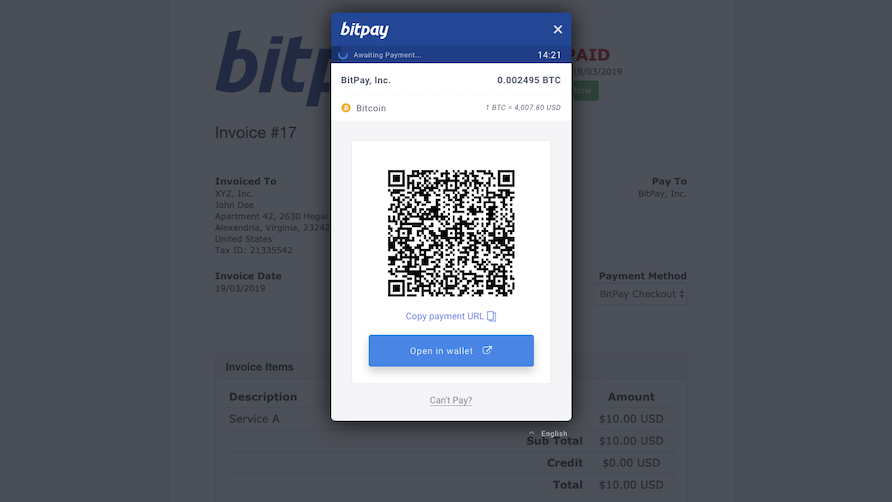

We're encouraged by the response we have received. We continue to work with other wallet providers in the Bitcoin ecosystem to advance adoption of the Bitcoin Payment Protocol. "From there, we will move to require Payment Protocol for all BitPay invoices. "Our next step will be requiring Payment Protocol payments for all BitPay Card loads," stated BitPay. Instead of cryptic Bitcoin addresses, the protocol uses human readable identifiers, which are then mapped to Bitcoin addresses. "We answer thousands of customer support requests every month, and we see first-hand how these problems affect BitPay merchants and their customers," notes BitPay, adding that if two wallets both "speak" Payment Protocol, the correct receiving bitcoin address and the correct sending amount are locked in automatically by creating an SSL-secured connection to the true owner of the receiving bitcoin address. The Bitcoin Payment Protocol (BIP70), proposed by Gavin Andresen and Mike Hearn in 2013, describes a protocol for communication between a merchant and their customer, "enabling both a better customer experience and better security against man-in-the-middle attacks on the payment process." A detailed explanation of the details of the payment protocol, written by Mike Hearn in Q/A format, is available on the Bitcoin forum.Īccording to BitPay, the Payment Protocol will reduce user error in bitcoin payments, such as payments sent to a wrong address or with a transaction fee that is too low for fast processing by the Bitcoin network. "We absolutely do not support BitPay in aggressively using their dominant position of market share to bully wallet providers into supporting their business plans or bully users into a system that degrades their privacy and the fungibility of bitcoin as a whole," stated bitcoin wallet Samourai in its blog post of January 2, 2018.


 0 kommentar(er)
0 kommentar(er)
